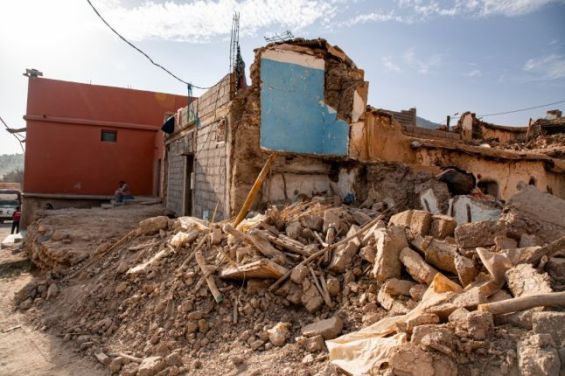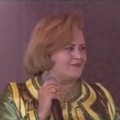More Moroccans are concerned about climate change and want the government to do more to address it following the September 2023 earthquake, a major natural disaster that killed almost 3,000 people and injured around 5,000 people.
8 out of 10 Moroccans say the government should address climate change, according to a survey conducted by the Arab Barometer. The trend is part of a series of questionnaires conducted between December 2023 and January 2024. The Barometer surveyed 2,400 Moroccans on various issues.
Water scarcity remains a key climate change concern for Moroccans, with the survey revealing that four out of 10 people say lack of water resources (24 percent), contamination of drinking water (11 percent), or pollution of water resources (5 percent) are the biggest environmental challenges in Morocco.
Moroccans want more women in political leadership
The survey also covered other topics such as civil liberties and women’s rights. Findings suggest however, a slight decline in opinions about women's ability to lead politically despite strong support for reserving seats for women in parliament (71 percent) and government (70 percent).
Similarly, nearly three-quarters of Moroccans (73 percent) believe that having women in political leadership is helpful in promoting women's rights.
In employment, nearly two-thirds (64 percent) say men and women should have equal access to employment opportunities, and Moroccans see many obstacles to women's employment. The most frequently cited obstacles are related to lack of job opportunities (17 percent), low wages (14 percent), gender bias (13 percent), and lack of childcare options (12 percent).
Moroccans recognize that women continue to be harassed, with 8 in 10 (79 percent) saying harassment is common on the streets by strangers, and two-thirds (65 percent) reporting it in the workplace.
Freedom of expression online
As for civil liberties, the Arab Barometer finds that the majority respondents (58 percent) say that freedom of expression is very or moderately guaranteed. More than half (57 percent) also believe that the freedom to protest is very or moderately guaranteed, an increase of 12 percentage points compared to 2022 (45 percent).
However, many Moroccans are concerned about restrictions on freedom of expression online, particularly censorship and blocking by the government (54 percent), foreign governments (51 percent), and social media platforms (53 percent).
In the political scene, support for normalization with Israel has declined significantly, likely due to Israel's war on Gaza.
Locally, 33 percent of respondents expressed trust in the Moroccan government and 30 percent in Prime Minister Aziz Akhannouch. Trust in other institutions rose to 38 percent for parliament, 49 percent for regional government, 74 percent for the judiciary, and 70 percent for civil society organizations.
Respondents also stressed that spending on subsidies, education, and health care should be the most important priorities for government spending.
A widening gap between rich and poor
Economically speaking, 4 in 10 (39 percent) see the gap between rich and poor widening. Moroccans see the biggest challenges facing their country as the economy (22 percent), corruption (20 percent), public services (18 percent), and climate change (14 percent).
Almost two-thirds of Moroccans (63 percent) ran out of food before they had money to buy more in the past 30 days. This percentage has increased significantly since 2022, when only 36 percent reported the same.
There is little agreement on what moves the government should take to improve the economy. The most frequently mentioned actions by citizens are reducing the recession (28 percent), creating jobs (20 percent), reforming education (14 percent) and increasing wages (11 percent).
Nearly a third (35 percent) want to emigrate, and a large number cite economic factors as the main reason for this desire (45 percent of those who want to emigrate). Those who want to emigrate are most likely to be men under the age of 30 with a college education. More than half of potential immigrants (53 percent) said they would emigrate even if the necessary paperwork was not available.




 chargement...
chargement...












